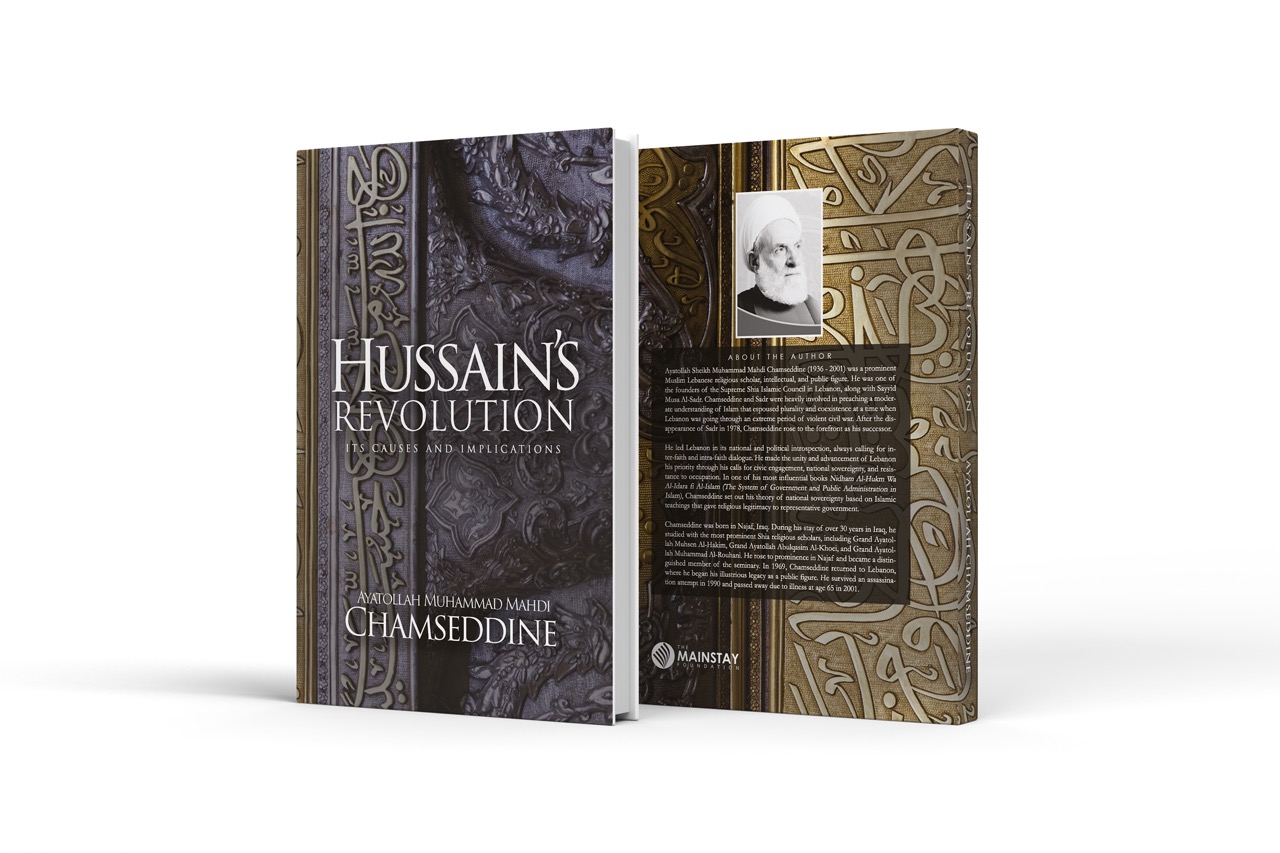




In The Tragedy of Karbala in the Popular Conscience, Ayatollah Chamseddine writes: The secret of this revolution is that it immaculately resonates in every heart and soul. Human affection and sentiment embraces the renaissance and revolution of Hussain without any kind of hesitation. Muslims and non-Muslims alike are inspired and moved by his revolution.
More particularly, Shia Muslims have dedicated almost every aspect of their lives to his honor. The cultural, social, ethical, and political identity of the Shia Muslim is owed to the revolution and sacrifice of Imam Hussain. When you look back at the history of Islam and all the revolutions that took place, the revolution of Hussain is the only one that lives vibrantly in the hearts and minds of Muslims. It is also the only movement that has found a place in the popular con-science of the people, whereby it enriched them and was enriched by them. It enriched people with its mantras, ideas, ethics, and noble goals. People enriched it with their noble stands in honor of the revolution and their principled outlooks throughout history. His revolution became the “Mother of Revolutions” in the history of Islam.
Ayatollah Sheikh Muhammad Mahdi Chamseddine was a prominent Shia-Lebanese religious scholar, intellectual, and public figure. He was one of the founders of the Supreme Shia Islamic Council in Lebanon, along with Sayyid Musa Al-Sadr and others. Chamseddine and Sadr were heavily involved in preaching a moderate understanding of Islam that espoused plurality and coexistence at a time when Lebanon was going through an extreme period of violent civil war. After the disappearance of Sadr in 1978, Chamseddine rose to the forefront as his successor.
Chamseddine was not only a religious figure, but a public intellectual and political thinker. He led Lebanon in its national and political introspection, always calling for inter-faith and intra-faith dialogue. He made the unity and advancement of Lebanon his priority through his calls for civic engagement, national sovereignty, and resistance to occupation. At the same time, his theory of political legitimacy was based on notions of social contract and popular sovereignty, as opposed to other prevalent Islamist ideologies at the time. I one of his most influential books Nidham Al-Hukm Wa Al-Idara fi Al-Islam (The System of Government and Public Administration in Islam), Chamseddine set out his theory of national sovereignty based on Islamic teachings that gave religious legitimacy to representative government.
Chamseddine also played a central role in the establishment of the Islamic University of Lebanon, which became a leading institution in the country, including in fields such as surveying and biomedical engineering. The University is a member of the International Association of Universities and the Francophone University Association, as well as a number of other regional associations. Chamseddine also established a number of other institutions, including schools, orphanages, and social service organizations.
Chamseddine was born in Najaf, Iraq, in 1936 to a family known for religious and scholarly achievement. His father had migrated to Najaf to pursue his religious studies there. In 1948, while Chamseddine was still 12 years old, his father decided to return to Lebanon. Chamseddine stayed in Najaf to pursue his own religious education. During his stay of over 30 years in Iraq, Chamseddine studied with the most prominent Shia religious scholars, including Grand Ayatollah Muhsen Al-Hakim, Grand Ayatollah Abulqasim Al-Khoei, and Grand Ayatollah Muhammad Al-Rouhani. He rose to prominence in Najaf and became a distinguished member of the seminary. In 1969, Chamseddine returned to Lebanon, where he began his illustrious legacy as a public figure. He survived an assassination attempt in 1990 and passed away due to illness at age 65 in 2001.